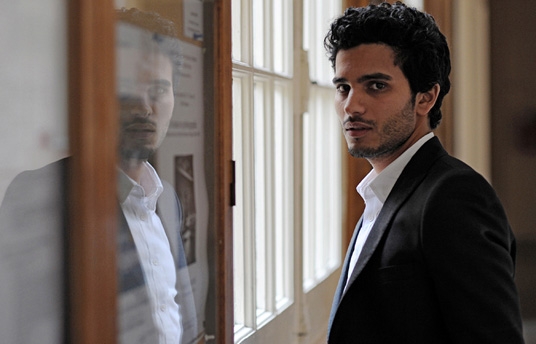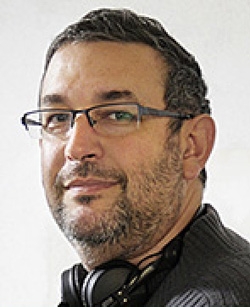From Berlin: Blog #1
Feb 10, 2013

© Michaël Crotto / Mercredi Films
By Kaleem Aftab, Berlin International Film Festival 2013
“It’s not a creative act to write the script, the creativity comes from behind the camera, that is where the story is made.” —Mehdi Ben Attia
‘Why am I an Arab?’ It’s the question that’s at the heart of 44-year-old Tunis born writer–director Mehdi Ben Attia’s tale Je ne Suis Pas Mort (I’m not Dead). Set in Paris, where Attia has been living since he was 18, the identity swap drama follows gifted 20-year-old Arab student Yacine as he strikes up a friendship with French tutor Richard. The jaunty atmosphere is turned on its head when Richard dies and the soul of Richard possesses the body of Yacine. Attia’s tale looks into the conundrum of how a 50-year-old white man would cope if he woke up in the body of an Arab?
“Yacine (Mehdi Dehbi) is probably a third generation immigrant,” the director explains at the Berlin Film Festival. “His father might be born in France, he has little connection with original culture, probably does not even know about Arab and Muslim culture, he has lived Western and French culture, but because of hisface he is – not necessarily in a bad way –pigeon-holed and he develops this complex, why am I an Arab? Will I be an Arab all my life? And sadly, the answer is yes!”

Mehdi Ben Attia
It’s an accomplished film that plays like a thriller in which the protagonist doesn’t realise he is in a thriller. With its Hermann-esque score, sense of mystery, femme fatale and identity crisis, it’s small wonder that the film has been compared in reviews to those of the great British director Alfred Hitchcock. “That’s really flattering,” says Attia in his likeable modest manner. “I thought about Hitchcock very much and David Lynch in the way he lets go of the story. There is one scene we paid homage to Blue Velvet where he hides in the closet and he sees the scene play out, the editing is exactly the same as the cuts made in Blue Velvet.”
Attia came to cinema through his desire to be a writer. He tried fiction and journalism before the economics graduate discovered that his true calling lay in screenwriting. Several of his scripts were produced, and eventually the pull of directing proved too great. “I think the real writing of the film comes from behind the camera,” he posits. “It’s not a creative act to write the script, the creativity comes from behind the camera, that is where the story is made.”
He has two scripts planned in Tunisa but doesn’t know if the post-revolution situation will allow him to make them. He says of his homeland, “I noticed the people walk differently.’ As for his own sense of Arab identity, “I don’t know if I want to say, I feel like it’s probably a curse but you’ll write that,” he laughs. “It’s something given to you and there is little you can do about it.”